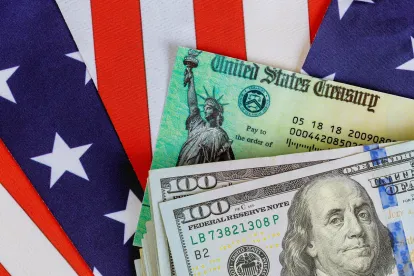The Coronavirus Aid, Relief, and Economic Security Act (“CARES Act”) provides many avenues of potential funding relief for health care providers and suppliers who are suffering increased expenses and lost revenues as a result of the coronavirus pandemic. Some of these funding opportunities may or will require affirmative action by a health care provider or supplier, e.g., the submission of an application for relief. Other funding mechanisms will go into effect without additional provider action. Set forth below is a summary description of these opportunities.
$100 Billion Appropriation for Expenses and Losses Due to Coronavirus
One of the most substantial CARES Act appropriations designed to provide relief to health care providers is the $100B appropriated to the Public Health and Social Services Emergency Fund (“PHSSEF”). The Office of the Assistant Secretary for Preparedness and Response (“ASPR”), a small agency within the Department of Health and Human Services (“HHS”), currently administers the PHSSEF. Other than as described in the CARES Act, the requirements for obtaining COVID-19 related PHSSEF funding remain unclear, as HHS and the ASPR have not yet published any application process, instructions, guidelines, or forms.
On April 7, 2020, CMS Administrator Seema Verma announced that $30B of the appropriation will be distributed directly to health care providers by Friday, April 10, on the basis of the providers’ prior receipts of traditional Medicare reimbursement. However, until HHS or the ASPR provides guidance with respect to how the other $70B may be distributed, the CARES Act statutory provisions may offer the primary insight into its associated application and distribution processes. Accordingly, eligible health care providers and suppliers may wish to consider beginning to prepare their justifications for any application for these funds.
The $100B appropriation into the PHSSEF is intended broadly to “prevent, prepare for, and respond to coronavirus… for necessary expenses to reimburse… eligible health care providers for health care related expenses or lost revenues that are attributable to coronavirus.” Examples of covered expenses identified in the CARES Act include, but are not limited to, “building or construction of temporary structures, leasing of properties, medical supplies and equipment including personal protective equipment and testing supplies, increased workforce and trainings, emergency operation centers, retrofitting facilities, and surge capacity.” The CARES Act does not similarly provide examples of covered lost revenues attributable to the coronavirus. In the absence of HHS or ASPR guidance, eligible health care providers may wish to consider whether they are suffering from any operational difficulties attributable, in whole or in part, to the coronavirus, including some of the following examples:
-
The cancellation of non-emergent procedures and surgeries;
-
Patients cancelling scheduled office visits due to fear of contracting coronavirus;
-
Fewer patients presenting to emergency departments due to fear of contracting coronavirus;
-
Compensation, benefits, and expenses associated with quarantined and/or furloughed clinicians and other employees; and
-
Expenses incurred in obtention of PPE and/or staff training.
If so, providers may wish to consider applying for PHSSEF funds as they consider their other immediate funding needs and options (such as insurance, loans, grants, or advances from Federal health care program and commercial reimbursement sources). The CARES Act specifically states that PHSSEF funds may not be used to reimburse expenses or losses that “have been reimbursed from other sources or that other sources are obligated to reimburse.” Until further guidance is issued, providers and suppliers should carefully consider whether the exercise of other options for immediate funding may later preclude their ability to apply for and/or receive PHSSEF relief.
Not all providers are eligible for funding. The CARES Act defines “eligible health care providers” broadly, to include (i) Medicare or Medicaid enrolled suppliers and providers, (ii) with a valid Tax Identification Number, and (iii) who provide diagnoses, testing, or care for individuals with possible or actual cases of COVID-19. However, considering the pandemic spread of the coronavirus, nearly every health care provider or supplier could find themselves “caring” for individuals with “possible” cases of COVID-19. It does not appear, from the text of the CARES Act itself, that the $100B appropriation is restricted (or designed to be restricted) to only those health care providers and suppliers who are actually furnishing items and services to patients diagnosed with active, current cases of COVID-19.
In addition to the uncertainty about which providers and which expenses and losses may ultimately qualify for PHSSEF funding, there is even less information available about the application process. The ASPR administers multiple funds in addition to the PHSSEF; prior to the CARES Act, the ASPR’s aggregate annual funding administration was $2.6B. It is possible that HHS will distribute additional PHSSEF funds directly, without an application process, and/or that the ASPR will utilize and rely upon CMS regional offices, MACs, state departments of health, and/or perhaps even hospital and other trade associations for assistance in administering the distribution of funds to eligible health care providers, if not the application review and approval processes. Indeed, the American Hospital Association has advocated for HHS to distribute $25B of the appropriated funds to the nation’s hospitals on a per-bed basis. While the processes for application and disbursement have not been announced, the jockeying among the facility and trade associations underscores how quickly the PHSSEF funds may be expended.
Until HHS or the ASPR publishes application process information, eligible health care providers should, in conjunction with other funding sources, consider the potential importance of an early filing and begin to prepare their funding justifications, including an articulation and quantification of their additional expenses and lost revenues attributable to coronavirus.
Hospital Preparedness Program
The CARES Act includes a $250 million appropriation to the Hospital Preparedness Program (“HPP”), which is designed to prepare the health care system to save lives through the development of regional health care coalitions (“HCCs”). The ASPR also manages the HPP and distributes HPP funds to 62 specific awardees, which are primarily local and state health departments, which then further distribute funds through the HCCs. There is no application process for hospitals to obtain HPP funds; the awardees have discretion in how to distribute HPP funds.
Medicare Accelerated Payments Program
The Medicare Accelerated Payments Program (“APP”) allows providers and suppliers to request and receive accelerated payments up to 100% of what they would otherwise receive (or 125% of what critical access hospitals would otherwise receive) from traditional Medicare, for a period covering up to 3 or 6 months. These payments would effectively be ‘advances’, as HHS would have (i) no longer than 120 days to begin recouping the payments through offset of claims; and (ii) to recoup all payments within 12 months. A provider may request specific amounts of payments from its MAC and is eligible if it (1) has billed Medicare within the last 180 days, (2) is not in bankruptcy, (3) is not under active medical review or program integrity investigation, and (3) does not have any outstanding, delinquent Medicare overpayments.
Most providers will be able to request up to 100% of its monthly payment amount from traditional Medicare for a 3-month period (although hospitals can request up to 6 months’ payment), based on July through December 2019 traditional Medicare receipts. Providers and suppliers must begin repaying the advances within 120 days (by way of claims offset), and repay the outstanding balance, if any, by way of direct payment on day 210 (hospitals will have one year to repay the balance in full). If any amount remains unpaid 90 days after the repayment date, CMS could charge 10.25% interest on unpaid balances. As of April 7, 2020, CMS maintained that it is not authorized to waive or reduce the interest rate.
Increase for Discharges of COVID-19 Patients
The CARES Act increases by 20% Medicare reimbursement for discharges of hospital inpatients diagnosed with COVID-19, as indicated by the new ICD-10-CM code for COVID-19.
Sequestration Delay
Medicare “sequestration”, the annual 2% reduction in Medicare payments, is temporarily suspended from May 1, 2020, to December 31, 2020.
Delay of Disproportionate Share Hospital (“DSH”) Payment Reductions
The CARES Act delayed reductions in DSH payments by one year. DSH payments are made to qualifying hospitals that serve a large number of Medicaid and uninsured individuals.
Small Business Administration (“SBA”) Loans
The CARES Act expands the eligibility criteria for borrowers to qualify for loans that are available through the SBA by adding the Paycheck Protection Program to the SBA’s loan programs. More information about the PPP is available here.



 />i
/>i

